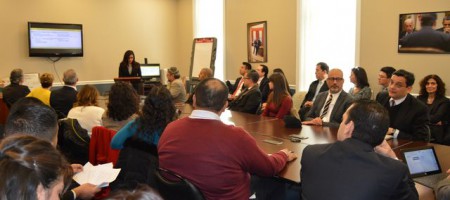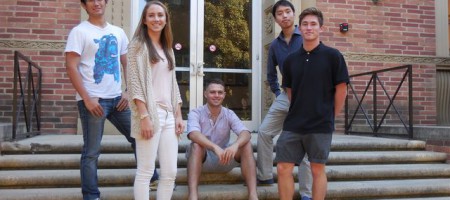UCLA Chicana/o studies students present DACA data at the White House
White House immigration staff members attended a briefing Friday on the economic impact of the Deferred Action for Childhood Arrivals (DACA) program, which President Obama passed by executive order in 2012 and expanded this year.







